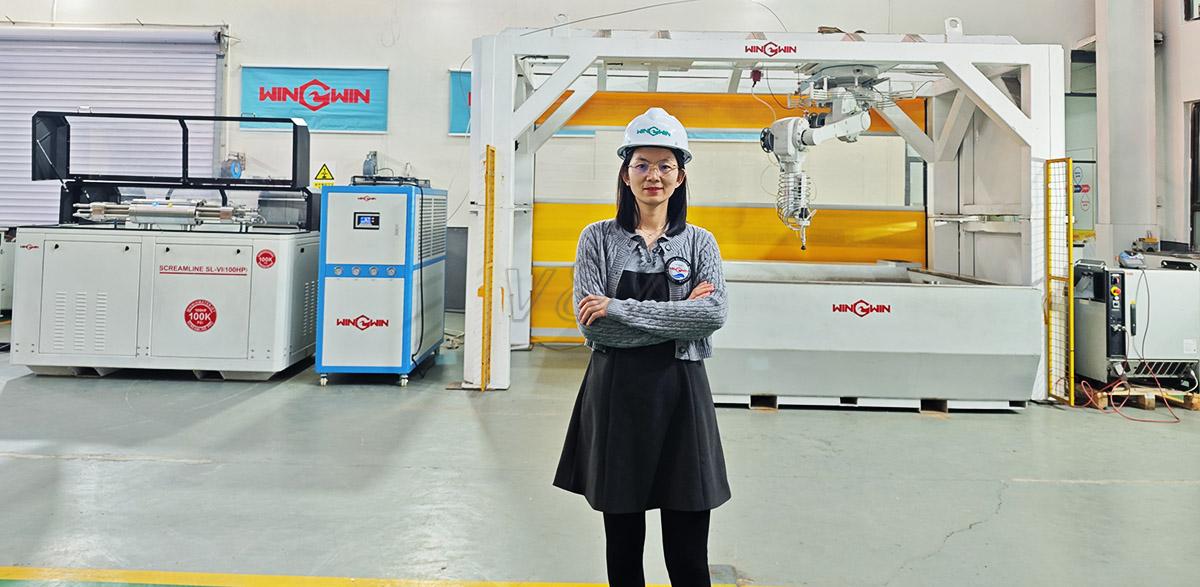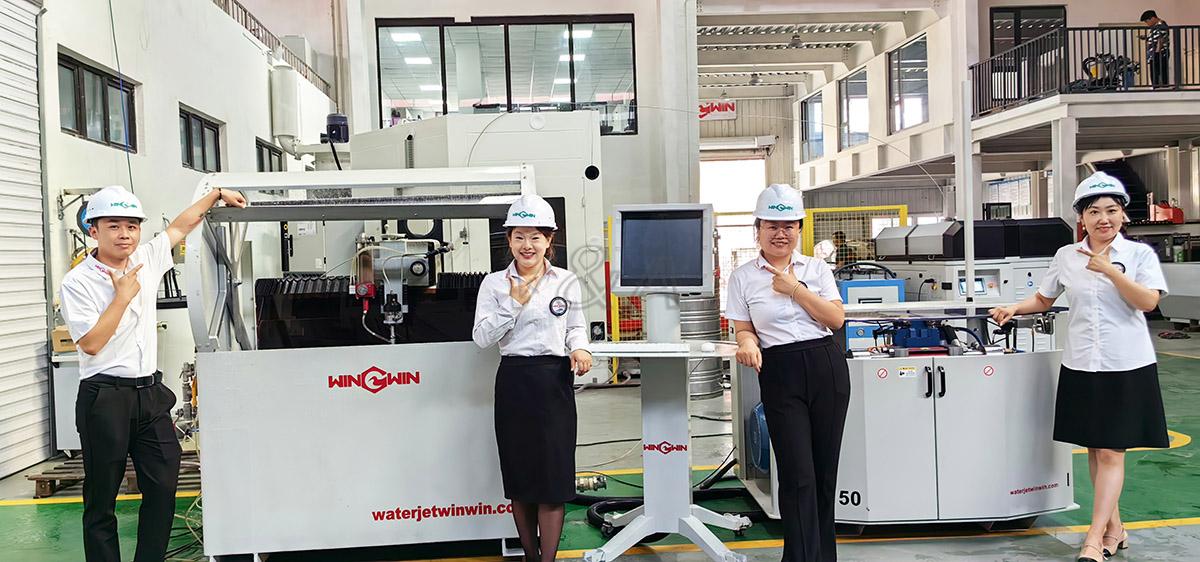Introduction
Waterjet cutting technology has revolutionized precision cutting across various industries. Among its many variations, the underwater
waterjet cutting machine stands out for its ability to cut materials while submerged. This method reduces noise, minimizes splashback,
and enhances safety, making it an ideal choice for specialized applications. This article explores the features, advantages, and applications
of underwater waterjet cutting machines.

1. Features of Underwater Waterjet Cutting Machines
Underwater waterjet cutting machines are designed to operate in submerged conditions, incorporating several key features:
a. High-Pressure Waterjet System
These machines use ultra-high-pressure (UHP) water, often mixed with abrasive materials, to cut through tough materials such as metal, composites,
and ceramics with extreme precision.
b. Noise and Splash Reduction
Unlike traditional waterjet cutters, underwater cutting significantly reduces noise levels by dampening sound waves. It also prevents excessive water
splash, enhancing workplace safety.
c. Minimal Heat Generation
Waterjet cutting is a cold-cutting process, meaning there is no heat-affected zone (HAZ). This prevents material warping, making it ideal for heat-sensitive
materials.
d. Precision and Accuracy
Equipped with automated CNC controls, these machines can achieve intricate cuts with tolerances as tight as ±0.001 inches.
e. Environmentally Friendly
Since the process uses water and natural abrasives, there are no toxic fumes or hazardous waste, making it a sustainable alternative to laser or plasma
cutting.
2. Advantages of Underwater Waterjet Cutting Machines
The unique design and operation of underwater waterjet cutting machines offer several benefits:
a. Enhanced Safety
Submerging the cutting process reduces airborne dust and debris, protecting operators from inhaling harmful particles.
b. Reduced Material Distortion
Since underwater cutting eliminates heat buildup, materials remain structurally intact, ensuring clean and precise cuts.
c. Lower Noise Levels
Water absorbs sound waves, making underwater waterjet cutting much quieter compared to air-based cutting systems, reducing noise pollution in
industrial settings.
d. Increased Equipment Lifespan
By operating underwater, machine components experience less wear and tear from heat and friction, extending their operational lifespan.
e. Versatility in Material Cutting
These machines can cut a wide range of materials, including metals, plastics, composites, glass, ceramics, and rubber, making them highly versatile.
f. Cost-Effective Operation
Waterjet cutting reduces material wastage and eliminates the need for secondary processing, lowering production costs.
3. Applications of Underwater Waterjet Cutting Machines
Due to their precision and adaptability, underwater waterjet cutting machines are widely used across multiple industries:
a. Aerospace Industry
Used for cutting high-strength materials like titanium and carbon fiber composites without compromising structural integrity.
b. Shipbuilding and Marine Industry
Essential for underwater repairs, submarine construction, and ship component fabrication.
c. Oil and Gas Industry
Used for subsea pipeline cutting, decommissioning rigs, and underwater maintenance.
d. Defense and Military Applications
Employed in demolition, mine clearance, and armor plate cutting for military-grade equipment.
e. Automotive Industry
Used for precision-cutting of vehicle components, ensuring high-quality manufacturing.
f. Manufacturing and Fabrication
Ideal for custom metal parts, artistic designs, and prototype development.

Underwater waterjet cutting machines offer an innovative solution for precision cutting in submerged environments. Their unique features, such as
noise reduction, safety enhancements, and high precision, make them indispensable in industries requiring underwater fabrication. As technology
advances, these machines will continue to play a crucial role in marine engineering, aerospace, and industrial manufacturing, ensuring cleaner, safer,
and more efficient cutting solutions.